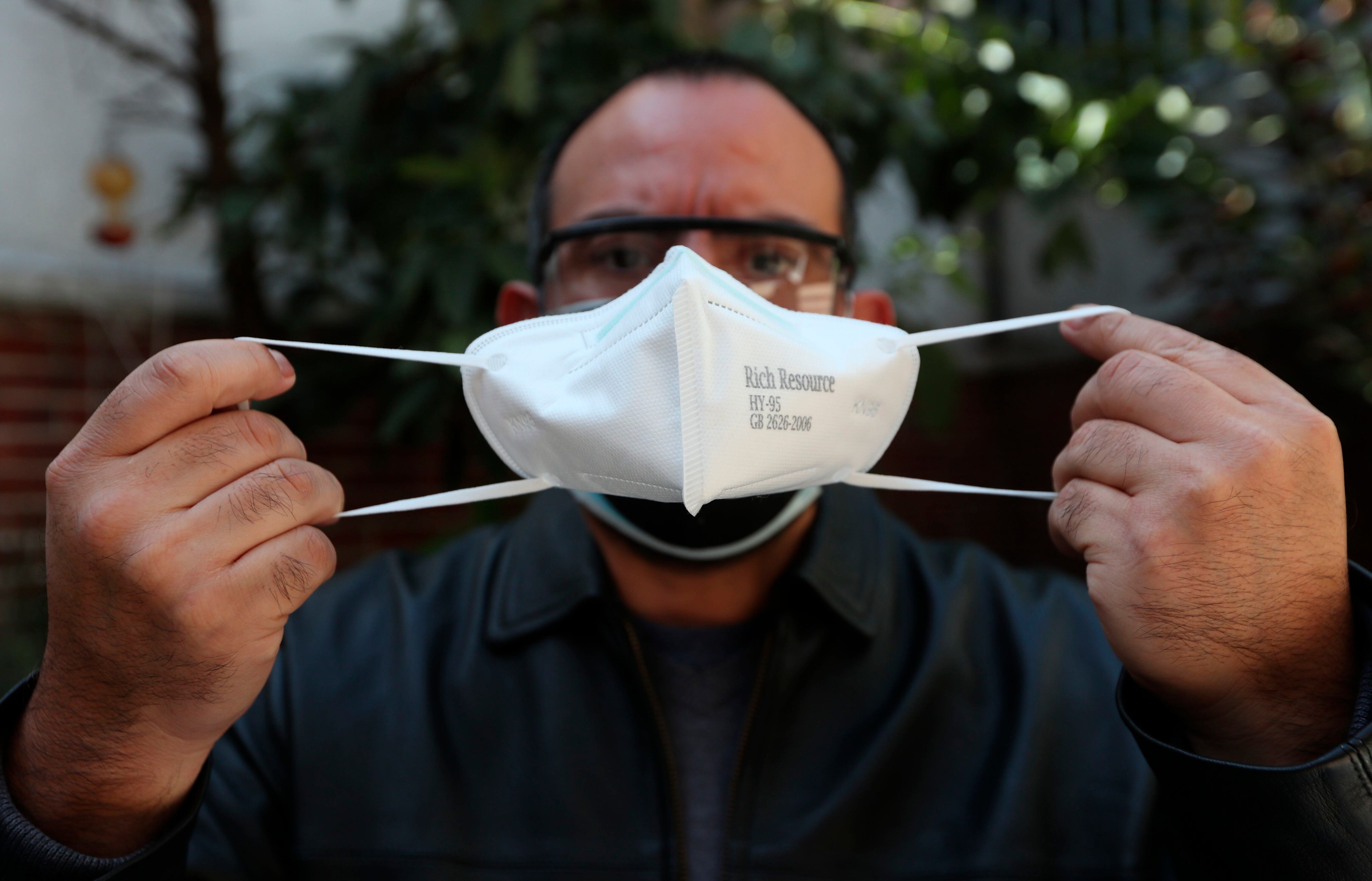:quality(85)/cloudfront-us-east-1.images.arcpublishing.com/infobae/FDRSV4BOCZCOXJOSXFVC7RIPUI.jpg 420w)
Coronavirus infection causes COVID-19 disease. Its sequelae in turn cause another emerging disease, which is already recognized as “long-term COVID-19” or Post COVID. It is developed by people who have had confirmed or probable infection with coronavirus. New research from the University of California in Los Angeles, United States, revealed that 30% of people treated for COVID-19 developed long-term COVID, prolonged or persistent.
The disorder usually appears “usually three months after the onset of COVID-19. The symptoms last at least two months and cannot be explained by an alternative diagnosis,” said Dr. Janet Díaz, head of clinical management at the World Health Organization in October last year when long-term COVID was officially recognized as a disease. There are more than 200 symptoms associated with the syndrome.
The new study was published in the specialized journal Journal of General Internal Medicine, and led by Dr. Sun Yoo, from the University of California at Los Angeles (UCLA), who is the medical director of the care extension program.
When analyzing the data, the researchers found that people with a history of hospitalization, diabetes and a higher body mass index were the most likely to develop long-term COVID disease, while those who were covered by Medicaid, as opposed to commercial health insurance, or had had an organ transplant were less likely to develop it.
Surprisingly, ethnicity, advanced age and socioeconomic status were not associated with prolonged COVID syndrome, even though those characteristics have been linked to serious illness and increased risk of death from COVID-19.

Of the 309 people with long-term COVID that were studied, the most persistent symptoms were fatigue and shortness of breath (31% and 15%, respectively) in hospitalized people, and loss of sense of smell (16%) in outpatients.
The incidence and risk factors of long-term COVID, and even how to define the syndrome, have remained unclear throughout the pandemic. Researchers sought to assess their association with demographics and clinical characteristics in order to devise the most effective treatments.
UCLA researchers studied 1,038 people who enrolled in UCLA's COVID Outpatient Program between April 2020 and February 2021. Of these, 309 developed long COVID. A person was determined to have the syndrome if they reported persistent symptoms in questionnaires 60 or 90 days after infection or hospitalization.
Potential weaknesses of the study include the subjective nature of how patients rated their symptoms, the limited number of symptoms the researchers evaluated, and limited information about patients' pre-existing conditions.
“This study illustrates the need for longitudinal monitoring of diverse patient populations to understand the trajectory of the COVID disease of long duration and assess how individual factors, such as pre-existing comorbidities, sociodemographic factors, vaccination status and type of virus variant, affect the type and persistence of long COVID symptoms,” said Dr. Sun Yoo, adjunct clinical professor of health sciences at the Faculty of David Geffen Medicine of UCLA and Medical Director of the Extensive Program.

“Studying outcomes in a single healthcare system can minimize variation in health care quality. Our study also raises questions such as: Why were patients with commercial insurance twice as likely to develop long-term COVID as patients insured through Medicaid?” , the expert asked herself.
He also noted that “as persistent symptoms can be of a subjective nature, we need better tools to accurately diagnose long-term COVID syndrome and differentiate it from exacerbations of other emerging or chronic conditions. Finally, we need to ensure equitable access to outpatient care for long COVID.”
Consulted by Infobae, the head of pneumonology at the Posadas National Hospital in Argentina, Dr. Alejandra González, commented that regarding the possibility of developing the long-term COVID disorder should be taken into account: “It is not necessary that all people who had the COVID-19 do a check-up during the months following infection. The consultation will depend on the severity of the COVID-19 condition, the patient's history and the presence or persistence of symptoms.”
In addition to knowing how many patients develop the syndrome after coronavirus infection, there are other unknowns pending. In Argentina, 10 research group networks received grants from the National Agency for the Promotion of Research, Technological Development and Innovation to investigate the different long-term impacts of COVID.

Rosana Chehin, PhD in Biochemistry and Director of the Research Institute in Applied Molecular and Cellular Medicine (IMMCA) in Tucumán, and her team will carry out laboratory models and validate a test with inputs produced by the network. “Once the technique has been validated and if approval is obtained from the regulatory authority, a clinical trial will be designed to obtain data to support or dismiss the hypothesis of a relationship between Parkinson's disease and some cases of people affected by the coronavirus”, told Infobae recently.
Having coronavirus infection can also trigger the development of diabetes as a sequela. According to Infobae the doctor of genetics and molecular biology Gustavo Frechtel, from Conicet and the Hospital de Clínicas of the Faculty of Medicine of the University of Buenos Aires, “people with diabetes can suffer a serious condition if they have the coronavirus. But COVID-19 can also trigger new cases of diabetes, a sequel to the infection.”
With a network of researchers and in collaboration with the Argentine Diabetes Society, Frechtel is conducting a study with patients hospitalized in hospitals in the City of Buenos Aires and Corrientes and we will look for the causes of diabetes as a sequela, among other objectives.
Another of the Post-COVID researchers in Argentina is Dr. Jorge Quarleri, from the INBIRS Institute of Conicet and the Faculty of Medicine of the University of Buenos Aires, who will work with Irene Ennis in the city of La Plata, Leandro Jones in Chubut, and Adriana D'Addario, from the Forensic Medical Corps that reports to the Supreme Court of Nation. They will investigate the fibrosis that coronavirus infection can cause in the lungs.
KEEP READING:
